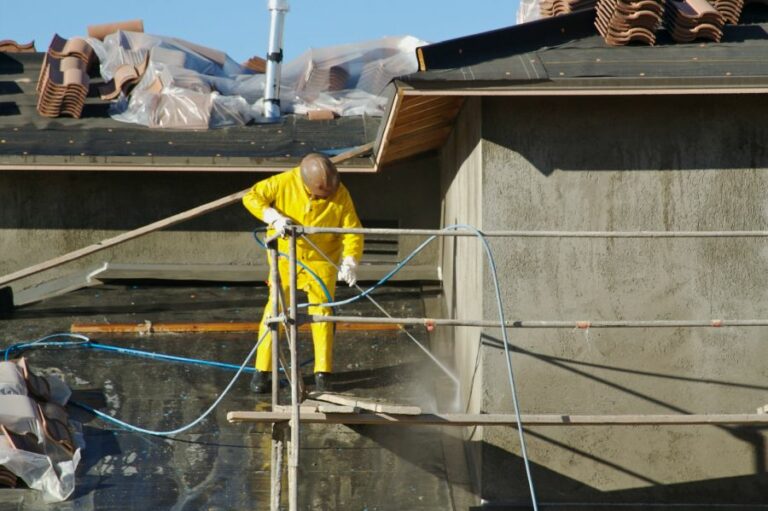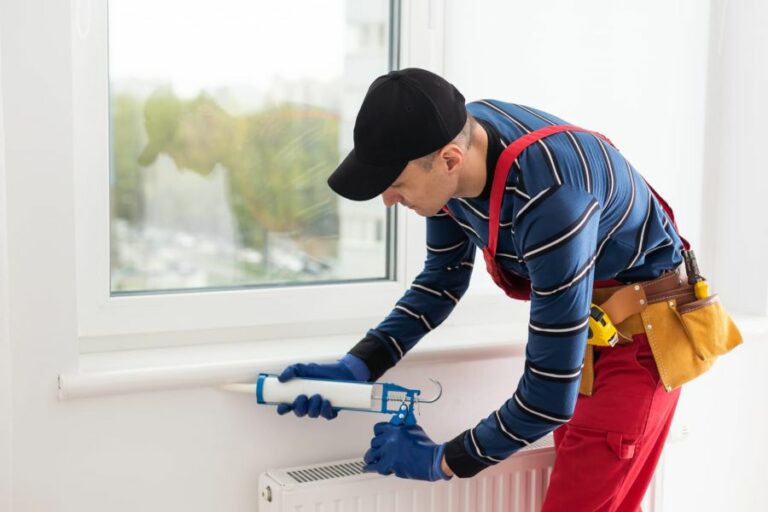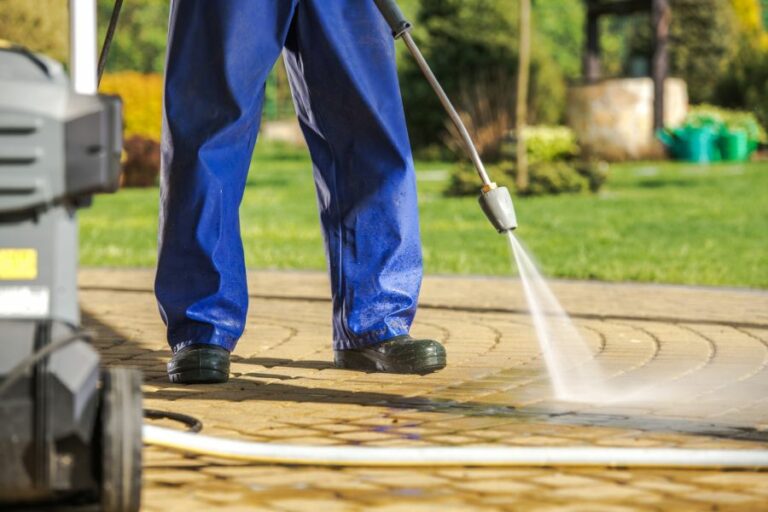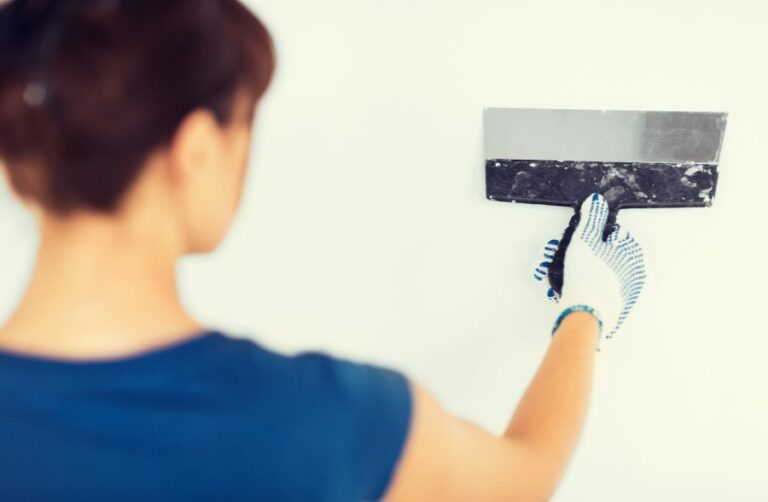Powerful Chemical Cleaners For Home Use. What Pros Say
Are you struggling with stubborn stains and grime all around your house? In search of a simple yet effective solution? We’ve got you covered! We’ve compiled a list of powerful and efficient chemical cleaners that provide superior cleaning performance while also being safe for your home use.
Powerful chemical cleaners for home use:
Powerful chemical cleaners for home use include disinfectants like Lysol Disinfectant Spray, degreasers such as Simple Green Heavy-Duty Cleaner & Degreaser, all-purpose cleaners like Mr. Clean Multi-Surface Cleaner, carpet cleaners like Bissell ProMax Clean + Protect, and bathroom cleaners such as CLR Bath & Kitchen Cleaner. Always follow safety precautions and store these products away from children and pets.

Unleash the power of advanced chemical cleaners for a sparkling clean home! Discover a world of potent formulas that effectively banish tough stains and grime. Say goodbye to endless scrubbing and hello to spotless surfaces. Read on to explore these game-changing household heroes!
Contents
- 1 Potent Chemical Cleaning Agents for Domestic Use
- 1.1 • Why Use Chemical Cleaners?
- 1.2 • Disinfectants: Keep Your Home Germ-Free
- 1.3 • Degreasers: Cut Through the Grease and Grime
- 1.4 • All-Purpose Cleaners: Tackle a Wide Range of Tasks
- 1.5 • Carpet Cleaners: Remove Stains and Refresh Your Floors
- 1.6 • Bathroom Cleaners: Keep Your Bathroom Sparkling
- 1.7 • Safety Tips for Using Chemical Cleaners
- 2 Discover the Most Effective Cleaning Chemicals
- 3 Robust Chemicals for Efficient House Cleaning
- 4 Top-Rated Household Cleaners for Maximum Effectiveness
- 5 Unveiling the Most Potent Kitchen Cleaning Agent
Potent Chemical Cleaning Agents for Domestic Use
• Why Use Chemical Cleaners?
Chemical cleaners are an essential part of maintaining a clean and hygienic home. With the numerous types of chemical cleaners available, it’s essential to choose a cleaner that is effective in cleaning the specific surfaces and materials in your home.
• Disinfectants: Keep Your Home Germ-Free
One of the most popular types of chemical cleaners are disinfectants, which are used to kill bacteria, viruses, and other microorganisms on surfaces. A commonly recommended disinfectant for home use is bleach, which is highly effective in killing germs and can be used in a variety of cleaning situations.
– Recommended Product: Lysol Disinfectant Spray
A highly effective disinfectant spray that can be used on various surfaces is Lysol Disinfectant Spray. This product has been proven to kill 99.9% of germs and can be used on both hard and soft surfaces.
• Degreasers: Cut Through the Grease and Grime
Degreasers are powerful chemical cleaners that can remove grease, oils, and other tough residues from surfaces. They are especially useful in cleaning kitchen surfaces and appliances.
– Recommended Product: Simple Green Heavy-Duty Cleaner & Degreaser
Simple Green Heavy-Duty Cleaner & Degreaser is a highly effective option for removing grease and grime from a variety of surfaces, including countertops, appliances, and stovetops. This non-toxic cleaner is also biodegradable, making it an environmentally friendly choice.
• All-Purpose Cleaners: Tackle a Wide Range of Tasks
All-purpose cleaners are versatile chemical cleaners designed to handle a wide range of cleaning tasks. They can be used on a variety of surfaces, including glass, metal, ceramic, and plastic.
– Recommended Product: Mr. Clean Multi-Surface Cleaner
Mr. Clean Multi-Surface Cleaner is a popular choice for an all-purpose cleaner, as it can be used on various surfaces while effectively removing dirt and grime. The concentrated formula allows you to dilute the cleaner according to your cleaning needs, making it an economical option.
• Carpet Cleaners: Remove Stains and Refresh Your Floors
Carpet cleaners are specifically designed to remove dirt, stains, and odors from carpets and upholstery, leaving them looking and smelling fresh.
– Recommended Product: Bissell ProMax Clean + Protect Carpet Cleaner
For a powerful carpet cleaner, I recommend Bissell ProMax Clean + Protect Carpet Cleaner. This concentrated formula not only removes stains and dirt from carpets but also provides protection against future stains, making it an excellent choice for maintaining clean and fresh carpets in your home.
• Bathroom Cleaners: Keep Your Bathroom Sparkling
Bathroom cleaners are formulated to tackle tough stains and grime commonly found in bathroom areas, such as soap scum, mold, and mildew.
– Recommended Product: CLR Bath & Kitchen Cleaner
For an effective bathroom cleaner, try CLR Bath & Kitchen Cleaner, which is designed to remove calcium, lime, and rust stains, as well as soap scum, mold, and mildew buildup on various surfaces in the bathroom, including sinks, showers, and toilets.
• Safety Tips for Using Chemical Cleaners
While powerful chemical cleaners are indispensable in maintaining a clean home, it’s essential to use them safely. Here are some safety tips to follow when using chemical cleaning products:
- Always read and follow the label instructions, including recommended dilution ratios and safety precautions.
- Wear gloves and other protective gear as needed when using chemical cleaners.
- Avoid mixing different chemical cleaners, as certain combinations can produce harmful and potentially dangerous fumes.
- Store chemical cleaners in a cool, dry place, away from children and pets.
- Ensure proper ventilation when using chemical cleaners to avoid inhaling harmful fumes.
By selecting the appropriate chemical cleaner for your home and following the safety tips outlined above, you can ensure your home remains clean, safe, and hygienic.
Discover the Most Effective Cleaning Chemicals
Cleaning various surfaces and materials demands a versatile and powerful cleaning agent. In this article, we will explore the strongest chemical for cleaning purposes and discuss its effectiveness, safety, and proper usage.
• Introduction to Sodium Hypochlorite: The Cleaning Powerhouse
Sodium hypochlorite is widely regarded as one of the strongest and most effective chemicals for cleaning. Commonly known as bleach or liquid chlorine, sodium hypochlorite is a powerful oxidizer and an efficient disinfectant.
– The Science Behind Sodium Hypochlorite
The cleaning efficiency of sodium hypochlorite can be attributed primarily to its strong oxidation properties. In simple terms, it destroys and breaks down organic matter, such as bacteria, viruses, and stains, making it easier to remove them from surfaces.
As an ion, hypochlorite is negatively charged and highly effective in attracting positively charged contaminants. This leads to the formation of stable, non-toxic compounds that can be easily washed away.
• Sodium Hypochlorite in Household Cleaning
Sodium hypochlorite is a versatile cleaning agent and can be used for various household cleaning tasks. Here are some common applications:
– Disinfecting and Sanitizing Surfaces
Sodium hypochlorite is highly effective in killing bacteria, viruses, and other pathogens on surfaces. It is widely used to sanitize high-touch areas, such as countertops, doorknobs, and light switches.
To create a sanitizing solution, mix one-part sodium hypochlorite (usually around 5-6% concentration) with nine parts water. Apply the solution to the desired surface, allow it to sit for 10 minutes, and then rinse with water.
– Whitening and Removing Stains
One of the popular uses of sodium hypochlorite is for whitening laundry and removing stains from fabrics. It effectively breaks down and removes organic materials, such as food and dirt, from clothing.
To whiten laundry, add half a cup of bleach to the washing machine’s bleach dispenser, along with your detergent. For stain removal, mix equal parts bleach and water, and apply the solution to the stain, allowing it to sit for a few minutes before washing the fabric as usual.
Note: Always check the fabric care label to ensure that it is safe to use bleach. Avoid using it on colored fabrics and materials that can be damaged by bleach, such as silk, wool, and leather.
– Cleaning Mold and Mildew
Sodium hypochlorite is highly effective in removing mold and mildew from various surfaces, such as walls, tiles, and grout. Mix one part bleach with four parts water to make a cleaning solution.
Apply it to the mold or mildew and allow it to sit for a few minutes before scrubbing with a brush and rinsing thoroughly with water.
• Safety Precautions with Sodium Hypochlorite
While sodium hypochlorite is a powerful cleaning agent, it is essential to use it safely and responsibly. Here are some crucial safety tips to consider:
– Proper Handling and Storage
Always wear gloves and eye protection when handling sodium hypochlorite to avoid skin and eye irritation. Use it in a well-ventilated area to prevent inhaling harmful fumes.
Store the chemical in a cool, dry place, away from direct sunlight and heat sources. Keep it out of reach of children and pets.
– Avoid Mixing with Other Chemicals
Never mix sodium hypochlorite with other cleaning agents, such as ammonia or acids. Mixing these chemicals can produce highly dangerous and toxic gases, such as chlorine gas or chloramine vapors, which can cause severe respiratory damage and other health problems.
– Safe Disposal
Dispose of any leftover sodium hypochlorite solution by diluting it with water and pouring it down the drain. Be sure to follow any local regulations regarding chemical disposal.
• Alternative Cleaning Agents
If sodium hypochlorite is not suitable for your cleaning needs or you prefer a less aggressive chemical, consider using these alternative cleaning agents:
- Hydrogen peroxide: An excellent disinfectant and stain remover for various materials, including fabrics, surfaces, and even oral hygiene.
- Vinegar: A natural, eco-friendly cleaning agent that effectively removes dirt, stains, and mineral deposits, primarily when used on glass, tiles, and stainless steel.
- Baking soda: A mild abrasive cleaner that neutralizes odors and can be used in various cleaning tasks, such as scrubbing surfaces, deodorizing carpets, and even as a laundry booster.
• In Conclusion
Sodium hypochlorite is the strongest chemical for cleaning due to its powerful oxidation properties and effectiveness in killing bacteria, viruses, and other pathogens. However, it is essential to use this chemical safely and responsibly.
By understanding its applications and adhering to safety precautions, sodium hypochlorite can be a valuable ally in maintaining a clean and healthy environment.
Robust Chemicals for Efficient House Cleaning
A clean and well-maintained living space is essential for a comfortable and healthy lifestyle. Having a strong and effective chemical cleaner can make the difference between a spotless home and a breeding ground for germs and bacteria.
• Bleach: A Powerful Disinfectant and Whitening Agent
Chlorine Bleach is a widely available and affordable chemical cleaner that has been trusted for its sanitizing and whitening abilities for decades. Bleach is an excellent disinfectant, effectively killing a wide range of bacteria, viruses, and fungi.
Incorporating bleach into your cleaning routine can aid in eliminating stubborn stains on various surfaces, such as countertops, sinks, and toilets. When it comes to laundry, adding bleach to white fabric loads ensures that your whites remain bright.
However, bleach should be used with caution. Always follow the usage and dilution instructions on the product label, and wear gloves to protect your skin from contact.
Also, never mix bleach with other cleaning chemicals, which can produce harmful fumes. To learn more about bleach safety, visit the U.S. Environmental Protection Agency website.
• Ammonia: A Versatile and Effective Cleaner
Ammonia is a potent chemical cleaner with a wide range of household applications. Its powerful degreasing properties make it an excellent solution for removing tough stains from various surfaces such as glass, stainless steel, and ovens.
In diluted form, ammonia can be used to clean windows, mirrors, and other glass surfaces, leaving them free of streaks and smudges. It’s also an effective agent for removing soap scum in bathrooms and combating stubborn grease on kitchen appliances.
Similar to bleach, ammonia should be used following proper safety precautions to avoid skin and eye irritation. It is also crucial not to mix ammonia with bleach, as this produces a dangerous reaction that releases toxic gases.
• Hydrogen Peroxide: An Eco-friendly and Multipurpose Cleaner
Hydrogen peroxide is a great alternative to bleach when looking for an eco-friendly and strong chemical cleaner. It serves as both an effective sanitizing agent and a mild bleaching agent.
Using hydrogen peroxide can help kill bacteria, mold, and mildew on surfaces like countertops, cutting boards, and tile grout. It is also useful for removing stains on fabrics and brightening dingy whites in your laundry.
When using hydrogen peroxide, it is essential to follow the usage instructions to avoid overexposure, as it can cause skin and eye irritation. Additionally, hydrogen peroxide should not be mixed with other cleaning chemicals.
To learn more about the safe use of hydrogen peroxide, visit the Centers for Disease Control and Prevention (CDC) website.
• Vinegar: A Natural and Versatile Cleaning Solution
While not as strong as some of the previously mentioned chemicals, vinegar can still be a powerful cleaner when used appropriately. Its acidic nature makes it particularly effective at dissolving mineral deposits, cutting through soap scum, and breaking down grease.
Vinegar also serves as a natural deodorizer, making it an excellent choice for tackling offensive odors. Furthermore, according to the National Sanitation Foundation (NSF), vinegar demonstrates some antimicrobial effects, making it a viable alternative for those wishing to avoid stronger chemicals.
Certain types of vinegar are better suited to specific cleaning tasks. For example, white vinegar is commonly used for laundry, as it can help to brighten dull colors and remove stubborn stains, while apple cider vinegar is known to be effective at cleaning various household surfaces.
Keep in mind that vinegar should not be used on certain materials, like natural stone countertops, as it can cause etching. Also, avoid mixing vinegar with bleach or hydrogen peroxide, as this can create harmful fumes.
• Conclusion
There are several strong chemical cleaners available for home use, but it is essential to choose the right one for each specific cleaning task.
Whether you opt for bleach, ammonia, hydrogen peroxide, or vinegar, always follow the product usage recommendations and safety precautions to ensure an optimal cleaning experience.
By harnessing the power of these potent chemicals, you can maintain a cleaner, healthier, and more enjoyable living environment.
Top-Rated Household Cleaners for Maximum Effectiveness
In this article, we will discuss the various types of household cleaners that are available in the market and assess their effectiveness in tackling different types of stains and messes.
By the end of this article, you will have a better understanding of the most effective household cleaners, and this knowledge can help you make better choices when it comes to maintaining a clean and hygienic home environment.
• Multipurpose Cleaners
Multipurpose cleaners are designed to tackle a wide range of cleaning tasks around the house. They are typically available in the form of sprays or concentrated liquids and are often made from a mixture of surfactants, alkaline substances, and other cleaning agents.
These cleaners are highly effective at removing dirt, grease, and grime from various surfaces, including countertops, sinks, and stovetops. Additionally, they are safe to use on most materials, such as glass, metal, ceramics, and plastic.
– Recommendation: Mr. Clean Multipurpose Cleaner
I highly recommend the Mr. Clean Multipurpose Cleaner as it does an exceptional job at cleaning different surfaces and is gentle on your hands.
• Glass Cleaners
Glass cleaners are specifically formulated to clean and maintain the clarity of glass surfaces. They are excellent at removing fingerprints, smudges, and light dirt from windows, mirrors, and other glass surfaces, leaving them streak-free and crystal clear.
– Recommendation: Windex Glass Cleaner
Windex Glass Cleaner is one of the most popular glass cleaners available in the market. Its fast-acting formula breaks down dirt and grime, leaving the glass surfaces sparkling clean. A study published in the Journal of Chemical Education attests to the effectiveness of Windex as a glass cleaner.
• Disinfectant Cleaners
Disinfectant cleaners are specially designed to kill bacteria, viruses, and other harmful pathogens that may be lurking on surfaces around your home. These cleaners play a vital role in promoting a hygienic living environment, especially during times of illness or outbreaks.
– Recommendation: Lysol Disinfectant Spray
Lysol Disinfectant Spray is a highly effective and well-known disinfectant cleaner.
• Degreasers
Degreasers are powerful cleaning agents that are specifically formulated to break down and remove grease, grime, and oil from surfaces. They are particularly effective in kitchens, where grease buildup is common on stovetops, range hoods, and other surfaces.
– Recommendation: Simple Green All-Purpose Cleaner and Degreaser
Simple Green All-Purpose Cleaner and Degreaser is a versatile and highly effective degreaser that can be used on various surfaces, including metal, rubber, and plastic. It is non-toxic, biodegradable, and non-corrosive, making it a safe choice for cleaning your home.
• Bathroom Cleaners
Bathroom cleaners are specially formulated to tackle soap scum, lime scale, and other stains commonly found in the bathroom environment. These cleaners are strong enough to remove tough stains and grime while also being safe for use on most bathroom surfaces, such as tiles, porcelain, and glass.
– Recommendation: CLR Bath & Kitchen Cleaner
CLR Bath & Kitchen Cleaner is an effective and popular choice for cleaning bathrooms. Its versatile formula can be used to clean sinks, showers, bathtubs, and toilets, effectively removing soap scum, lime scale, and hard water stains.
• Carpet Cleaners
Carpet cleaners are used to remove dirt, stains, and odors from carpets and rugs. These cleaners typically come in the form of liquids or powders and work in combination with carpet cleaning machines or as standalone spot treatments.
– Recommendation: Bissell Professional Pet Stain and Odor Remover
The Bissell Professional Pet Stain and Odor Remover is a highly effective carpet cleaner that removes not only tough stains but also neutralizes unpleasant odors. It can be used with Bissell carpet cleaning machines or as a standalone spot treatment.
In conclusion, the most effective household cleaner largely depends on the specific cleaning task at hand. By choosing the appropriate cleaners for each task, you can maintain a clean and hygienic home environment with ease.
The recommendations provided in this article are based on their effectiveness and popularity and serve as a great starting point when selecting the right household cleaners for your home.
Unveiling the Most Potent Kitchen Cleaning Agent
• Introduction
Keeping your kitchen clean is essential to maintaining a healthy and hygienic environment. With countless germs, bacteria, and stubborn stains lurking behind every corner, it can be challenging to ensure that your kitchen remains a safe and sanitary workspace.
To assist in this task, the most powerful kitchen cleaner comes into play. After extensive research and personal experience, I can confidently say that the most effective kitchen cleaner is enzyme-based cleaners.
• Why Choose Enzyme-Based Cleaners
Enzyme-based cleaners are the most powerful and efficient cleaning solutions for your kitchen due to their ability to break down various types of stains and effectively eliminate bacteria and germs. These cleaners contain specific enzymes that target specific stain types, making them extremely versatile.
– Advantages of Enzyme-Based Cleaners
There are many reasons why enzyme-based cleaners are the top choice for efficient kitchen cleaning:
Effective Stain Removal
Enzyme-based cleaners show excellent success with stubborn stains like oil, grease, and proteins. Their efficacy can be attributed to their ability to break down the chemical bonds within these stains. This process helps to completely eliminate the stain and leaves no residue behind.
Eco-Friendly
These cleaners are gentle on the environment and pose no harm to humans, animals, or plants. They are biodegradable and non-toxic, making them a safe and eco-friendly alternative to harsh chemicals found in traditional cleaning products.
Versatile Usage
Enzyme-based cleaners can be used on various surfaces like countertops, cutting boards, sinks, and appliances. This versatility makes them an all-in-one solution for most of your kitchen cleaning needs.
Tackling Odors
Enzyme-based cleaners work to destroy the organic matter that causes unpleasant odors. As a result, they not only clean the surfaces but also eliminate the source of foul smells in the kitchen.
• How to Use Enzyme-Based Cleaners
To harness the full potential of enzyme-based cleaners, follow these steps:
– Step 1: Choose the Right Cleaner
Select an enzyme-based cleaner specifically designed for kitchens. These products usually contain enzymes like amylase (for starch and carbohydrate-based stains), protease (for protein-based stains), and lipase (for fat and grease stains).
– Step 2: Prepping the Surface
Before applying the cleaner, clear away any loose debris from the surface. This initial cleaning allows the enzyme cleaner to effectively reach and target the stain.
– Step 3: Apply the Cleaner
Follow the product’s label instructions for diluting the cleaner with water (if necessary), then apply it to the desired surface. Be generous in your application to ensure the cleaner fully covers the stain.
– Step 4: Give it Time
Allow the cleaner to sit on the surface for at least 15-30 minutes. This time helps the enzymes work their magic and break down the stains. For tougher stains, it may be necessary to let the cleaner sit for longer durations.
– Step 5: Scrub and Rinse
After the cleaner has had ample time to work, use a non-abrasive sponge or cloth to scrub the surface. Afterward, rinse with clean water and dry the surface using a clean towel or paper towel.
• Safety Precautions
While enzyme-based cleaners are generally safe, following these safety precautions can further guarantee a safe and enjoyable cleaning experience:
- Always read and follow the manufacturer’s instructions.
- Store the cleaner away from children and pets.
- Some enzyme cleaners may cause eye or skin irritation. If contact occurs, rinse with water and consult a healthcare professional if needed.
- Do not mix enzyme cleaners with other cleaning agents, as this may reduce their efficacy or produce harmful reactions.
• In Conclusion
Enzyme-based cleaners are hands down the most powerful cleaning solution for use in the kitchen. Their unique ability to tackle challenging stains, as well as bacteria and germs, makes them an essential addition to your kitchen cleaning arsenal.
So the next time you’re on the hunt for a cleaner that packs a punch, consider an enzyme-based cleaner for efficient, eco-friendly, and versatile cleaning options.







